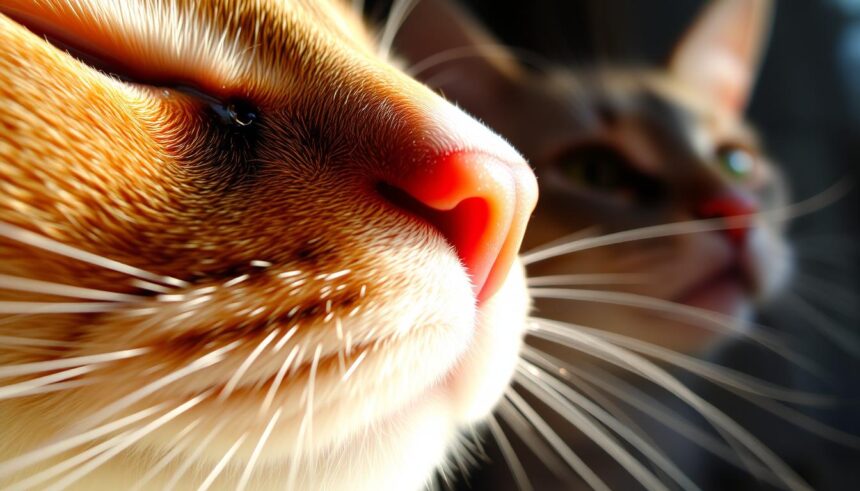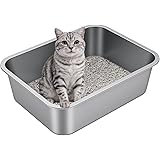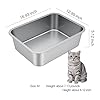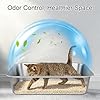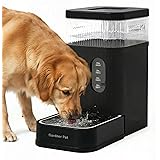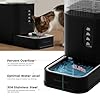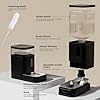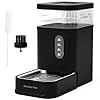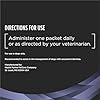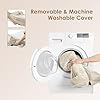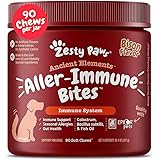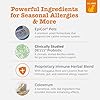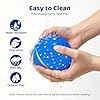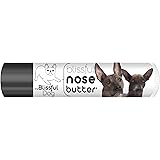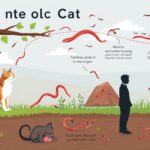As a cat owner, you might have asked are cat noses supposed to be wet and what it means for their health. With over 43 million households in the U.S. having at least one cat, knowing why their noses are wet is key. Wet noses show that cats are well-hydrated and their mucous membranes are working right.
Knowing why cat noses are wet helps spot health problems early. A wet nose usually means a cat is healthy and hydrated. But, it’s important to watch for any changes in a cat’s nose. In this article, we’ll look at why wet cat noses happen and guide you through a cat’s nose anatomy.
Key Takeaways
- Wet noses indicate proper hydration and effective functioning of mucous membranes.
- Excessive moisture from a cat’s nose may indicate an underlying health issue.
- A dry cat nose may reflect dehydration, especially if accompanied by lethargy, loss of appetite, or fever.
- Monitoring changes in a cat’s nose, such as color, temperature, or moisture levels, is key to identifying signs of health issues early.
- Regular veterinary check-ups are essential for monitoring potential health issues related to changes in a cat’s nose and overall well-being.
- Understanding the reasons behind are cat noses supposed to be wet can help you provide better care for your cat.
- Humidifiers can be beneficial for maintaining optimal moisture levels in your cat’s living environment, especially in dry climates.
Understanding the Anatomy of a Cat’s Nose
A cat’s nose is a complex and highly sensitive organ. It plays a crucial role in their overall feline nose health. The structure and function of a cat’s nose are designed to detect even the slightest changes in their environment. Their sense of smell is highly developed.
The moisture level of a cat’s nose can change throughout the day. This is influenced by environmental factors and overall health.
Structure and Function of Cat Noses
Cats have sweat glands in the skin around their nasal openings. This contributes to cat nose wetness. A wetter-than-normal cat nose can be a symptom of upper respiratory tract infections.
Importance of Nasal Tissue
Nasal tissue is essential for a cat’s sense of smell. Any issues with this tissue can affect their overall feline nose health. Dehydration is the primary reason for cat nose dryness. This can be exacerbated in arid environments or low humidity situations.
How Cats Use Their Sense of Smell
Cats use their sense of smell to navigate their surroundings and interact with their environment. Cat nose wetness concerns can be addressed by understanding the importance of nasal tissue. The role of sweat glands in maintaining a healthy nose is also crucial.
What Does a Wet Cat Nose Indicate?
A wet cat nose usually means your cat is well-hydrated and healthy. But, it’s important to watch for any changes in your cat’s nose. Abnormal cat nose wetness could be a sign of a health problem. The ASPCA says a wet nose is normal and healthy for cats. You can learn more about cat nose health on their website.
Several things can make a cat’s nose wet, like drinking water, temperature, and humidity. Cat nose care is key to keeping your cat healthy. Here are some reasons why a cat’s nose might be wet:
- Upper respiratory infections, which have a prevalence rate of approximately 30% in multi-cat households
- Fungal infections, which account for around 5% of all nasal issues in cats
- Allergies, which can contribute to nasal discharge in about 10% of cats
It’s crucial to know the signs of potential health issues. Taking cat nose health tips can help prevent problems. By watching your cat’s nose and overall health, you can keep them healthy and happy.
| Cause | Prevalence Rate |
|---|---|
| Upper respiratory infections | 30% |
| Fungal infections | 5% |
| Allergies | 10% |
The Role of Humidity and Environment
Humidity and environment are key in keeping a cat’s nose moist. Dry noses can mean a cat is dehydrated. Drinking water can make a cat’s nose wet, but it dries fast.
Regular grooming, like licking their noses, adds moisture. The environment greatly affects a cat’s nose. Warmer weather means more humidity, making a cat’s snout wetter.
Cold, dry air, like from air conditioning, can dry out a cat’s nose. This can cause cracks. It shows how important feline nose health is, especially in different environments.
- Temperature and humidity levels
- Indoor vs. outdoor living conditions
- Seasonal changes and their impact on nose wetness
These factors change cat nose moisture and feline nose health. Knowing about humidity and environment helps cat owners care for their pets better. It also helps spot health issues related to wet noses.
When is a Dry Cat Nose Normal?
A dry cat nose can happen for many reasons. It’s important to watch how your cat acts and feels. Cat nose dryness might be due to not drinking enough water, or because of the weather. Research shows a dry nose can mean a cat is dehydrated, but it’s not always a big worry.
Several things can make a cat’s nose dry. These include:
- Dehydration: If a cat doesn’t drink enough, its nose can get dry.
- Temperature: Very hot or cold weather can dry out a cat’s nose.
- Humidity: Not enough moisture in the air can also make a cat’s nose dry.
Watching your cat’s behavior and health is key. Cat nose care is important to avoid health problems. If your cat seems tired or doesn’t want to eat, it might be dehydrated. You should take them to the vet. Cat nose wetness concerns are also important for your cat’s health.
Seeing a vet regularly can spot health issues early. Knowing why a cat’s nose gets dry and preventing it can keep your cat healthy and happy.
Health Concerns Linked to Nose Changes
Cat owners should watch for changes in their cat’s nose. Abnormal cat nose wetness or dryness might mean respiratory problems, allergies, or infections. It’s key to check your cat’s nose often, as cat nose health tips advise, to spot health issues early.
A healthy cat’s nose is usually wet, helping them smell better. But, feline nose health can be influenced by many things, like the environment and the cat itself. If your cat’s nose gets too wet or dry suddenly, watch for other illness signs too.
- Respiratory issues, such as upper respiratory infections (URIs), which can cause a runny nose and other symptoms.
- Allergies, which can present with similar symptoms to URIs, including a runny nose and sneezing.
- Infectious diseases, such as feline herpesvirus and feline chlamydia, which can cause a range of symptoms, including a runny nose and eye discharge.
By regularly checking your cat’s nose, you can catch health problems early. Following cat nose health tips and understanding feline nose health is crucial. This way, you can keep your cat healthy and happy.
The Importance of Regular Check-Ups
Regular vet visits are key for a cat’s health. It’s important to watch for changes in their nose. Studies show that regular vet visits can add up to 15% to a cat’s life. This highlights the role of cat nose care and feline nose health in keeping your pet healthy.
Visiting the vet can catch health problems early. You can talk to your vet about cat nose health tips to get the best care. Some things to discuss include:
- Routine health monitoring for cats
- Signs of illness in pets, such as unusual lethargy or loss of appetite
- Importance of cat nose care in maintaining overall health
By following these feline nose health tips and regular vet visits, you can prevent health issues. This ensures your cat lives a long, healthy life. Remember, regular check-ups can spot small health changes early, helping catch potential problems.
How to Care for Your Cat’s Nose
Caring for your cat’s nose is key to their health. A cat’s nose is very sensitive and needs special care. To keep it healthy, follow good nose care practices, stay hydrated, and use home remedies for common problems.
Drinking enough water is important for your cat’s nose. Cats need fresh water always. You can make them drink more by placing water everywhere or using a water fountain. Also, canned food is better because it has more moisture than dry food.
Best Practices for Nose Health
For good cat nose care, gently clean their nose with a damp cloth. Avoid harsh chemicals or soaps. Also, keep the air humid to prevent dryness. Use a humidifier, especially in winter.
By following these tips, you can avoid dryness, irritation, and infections. Regular vet visits are also important. They help catch problems early. Remember, taking care of your cat’s nose is vital for their happiness and health.
Recognizing Signs of Trouble
As a cat owner, knowing the signs of abnormal cat nose wetness or health issues is key. The American Veterinary Medical Association says regular vet visits can spot problems early. Cats may seem independent, but behavior changes can signal health issues.
Look out for signs like changes in appetite, thirst, and breathing. If you see these, see your vet fast. They can find the cause and suggest treatment. Regular cat nose health tips and vet visits keep your cat well.
Here are some key signs to watch for:
- Changes in appetite or water intake
- Difficulty breathing or rapid breathing
- Nasal discharge or abnormal cat nose wetness
- Changes in stool quality or urine output
Knowing these signs and keeping your cat’s feline nose health in check can prevent issues. Regular vet visits and a healthy lifestyle keep your cat happy and healthy.
Keeping an observation timeline can track changes in your cat’s health. It’s a useful tool for spotting issues early and getting vet care when needed.
| Signs of Trouble | What to Do |
|---|---|
| Changes in appetite or water intake | Consult with your veterinarian |
| Difficulty breathing or rapid breathing | Seek immediate veterinary care |
| Nasal discharge or abnormal cat nose wetness | Consult with your veterinarian for guidance |
The Connection Between Nose Wetness and Health
Cat nose moisture is key to their health, and knowing its role is vital for cat owners. A wet nose often means a cat is well-hydrated and healthy. Yet, it’s important to watch for any changes in a cat’s nose. Why are cat noses wet is a question many ask, and the answer is tied to their body and surroundings.
Vets say a cat’s nose is connected to its breathing system. Changes in wetness can signal health problems. For instance, a dry nose might mean dehydration or breathing issues. On the other hand, a constantly wet nose could point to allergies or infections.
Several things impact feline nose health:
- Environmental humidity and temperature
- Drinking behavior and hydration levels
- Grooming habits and saliva production
- Underlying health conditions, such as allergies or infections
By grasping these factors and keeping an eye on a cat’s nose, owners can help their pets stay healthy and happy.
Can Diet Affect Cat Nose Health?
A cat’s diet is key to their health, including their nose. Giving them a balanced diet is crucial for feline nose health. A well-fed cat is less likely to have nose problems like dryness or discharge. For more info on cat health, check out cat health resources.
Some foods good for the nose include omega-3 rich foods. They help reduce inflammation and aid in healing. Also, vitamins A, E, and zinc are important for cat nose care. A good diet boosts a cat’s immune system, helping fight off infections that can harm their nose.
Here are some tips for keeping your cat’s nose healthy through diet:
- Give them a balanced and nutritious diet that meets their needs
- Add omega-3 rich foods and other key nutrients for nasal health
- Don’t overdo supplements, as it can upset the balance of nutrients
By following these tips and feeding your cat well, you can boost their health, including their nose. Always talk to your vet for specific advice on cat nose health tips and nutrition.
| Nutrient | Importance for Cat Nose Health |
|---|---|
| Omega-3 | Reduces inflammation and promotes healing |
| Vitamin A | Supports immune system and overall health |
| Vitamin E | Antioxidant properties help protect against cell damage |
| Zinc | Essential for immune system function and wound healing |
Understanding Cat Communication via Their Nose
Cats have their own way of talking, and smell is a big part of it. They use their sense of smell to communicate, which is really interesting. It’s important to know how scent helps them talk to each other.
Cat nose moisture is key in their communication. It helps them pick up on pheromones and other smells. These smells tell them important things.
Cats use their smell to talk to each other. How wet their nose is matters a lot.
The Role of Scent in Feline Behavior
Cats smell really well, using 80-90% of their senses to smell. They sniff out pheromones to learn about other cats. This includes who they are, if they’re male or female, and if they’re ready to mate.
So, why are cat noses wet? It’s because their nose helps them smell better.
How Cats Use Their Sense of Smell to Communicate
Cats talk to each other through smell in many ways. They mark their territory and touch noses. They also smell their humans to feel safe and loved.
By understanding how cats use smell, we can help keep their noses healthy. This helps them communicate better with us.
Myths and Misconceptions About Cat Noses
Cat owners often think a wet nose means a healthy cat. But, abnormal cat nose wetness can be due to many reasons. It’s key to know the truth and follow cat nose health tips to care for your cat well.
Many believe a cat’s nose is always wet. But, feline nose health depends on what the cat does and the environment. A cat’s nose can switch from wet to dry many times a day. It’s important to watch these changes to keep your cat healthy.
- Respiratory illnesses can cause abnormal cat nose wetness
- Changes in the environment, like humidity, affect feline nose health
- A cat’s sense of smell is vital for their appetite and health
Knowing these points and following cat nose health tips can help keep your cat’s nose healthy. Always talk to a vet if you worry about your cat’s nose or health.
Conclusion: The Takeaway on Cat Nose Health
A cat’s nose is key to their health and happiness. It’s important to watch over it and care for it often. Knowing how a cat’s nose works and what can affect it helps owners keep their pets healthy and happy.
Regular vet visits and watching your cat’s nose can spot problems early. Things like breathing issues, allergies, or sicknesses can be caught. Also, keeping your cat hydrated, grooming them right, and feeding them well helps their nose stay healthy.
Cats have a strong sense of smell, with 200 million scent receptors. This is much more than humans, with just 5 million. Keeping their nose moist and healthy is vital for their communication, navigation, and overall health.


